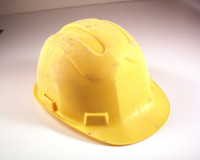Massachusetts law protects homeowners from contractors who violate the safety provisions of the building code. Unfortunately, meeting safety requirements can add to the expense of a construction or home improvement project. Homeowners may sometimes ask contractors to cut corners to lower the cost of the project. The Massachusetts Appeals Court recently considered whether a con
The plaintiffs hired the contractor to replace the roof and roof deck on their townhouse. The building code does not allow more than two layers of roofing on the building. Both the proposal and the final invoice included a line for stripping off the existing roof, but, instead of stripping off the roof, the contractor installed a rubber membrane over it. It was disputed whether the plaintiff represented to the contractor that there was only one layer of roofing and whether the plaintiff refused to allow the contractor to strip the layers, refused to allow the contractor to perform test cuts to find out how many layers there were, and expressly told the contractor to install a rubber membrane. The court noted that the results indicated that the jury likely believed the contractor’s version of the events.
A few years after the contractor installed the roof, an HVAC contractor cut a hole in the roof and found four layers of roofing materials and evidence of leaking. The plaintiffs hired a different contractor to strip the roof and install a new roof and deck.
The plaintiffs filed suit against the contractor to recover the costs of the replacement roof and deck. The plaintiffs’ claim was based on an alleged violation by the contractor of the building code, which prohibited the installation of a new roof over two or more existing layers, a violation of G.L. c. 142A, § 17(10). Both parties moved for summary judgment, and both motions were denied. The motion judge found that a jury could determine that the violation of the code was not intentional or knowing if the contractor relied on a representation by the plaintiff that there was just one layer of roofing.
The plaintiffs moved to exclude evidence regarding these alleged representations and instructions not to strip the roof. The plaintiffs argued that a consumer’s oral waiver of a building code requirement could not be used as a defense by a contractor. The judge denied the motion to exclude and instructed the jurors that they could only proceed to determine damages if they found that there was a violation of the building code and that the violation was not the result of instructions from the plaintiffs.
The jury ultimately found that there was a building code violation in the installation of the roof over three layers, but the violation resulted from the plaintiffs’ instructions to the contractor. The jury therefore did not assess damages, and the complaint and counterclaim were both dismissed.
The plaintiffs appealed, arguing the trial court erred in instructing the jury that the contractor could use as a defense a customer’s oral waiver of a “safety-related provision of the building code.”
The Appeals Court noted that § 2(9) of G. L. c. 142A states that an agreement to perform residential contracting services cannot waive the rights conveyed to the property owner under chapter 142A. Additionally, the building code’s purpose is to ensure public health, safety, and welfare and to protect people and property from hazards resulting from design, construction, and repair of buildings and structures. Allowing a homeowner to waive the right to require contractors to comply with the building code could endanger future homeowners, emergency personnel, and the public.
The appeals court held that the homeowners’ oral waiver of the building code requirement did not defeat the contractor’s liability for the violation in this case, since the written agreement stated that the contractor would strip the roof, and there were potential safety consequences as a result of the violation. The instructions the judge gave to the jury were erroneous. The Appeals Court found that there was “no doubt the jury would have reached a different result” if not for that erroneous instruction. Furthermore, since the jury had specifically found that the contractor had violated the building code, the plaintiffs were entitled to a judgment in their favor. The Appeals Court reversed the judgment for the defendants, ordered judgment in favor of the plaintiffs, and remanded for proceedings on damages.
Homeowners should be able to rely on the expertise of their contractors, and contractors can be held liable for not meeting the building code, even if the client requests a variance. If you have a contract dispute related to home construction or home improvement, you need an experienced Massachusetts construction law attorney. Call the Law Offices of Richard Mucci at (781) 729-3999 to make an appointment to discuss your case.
